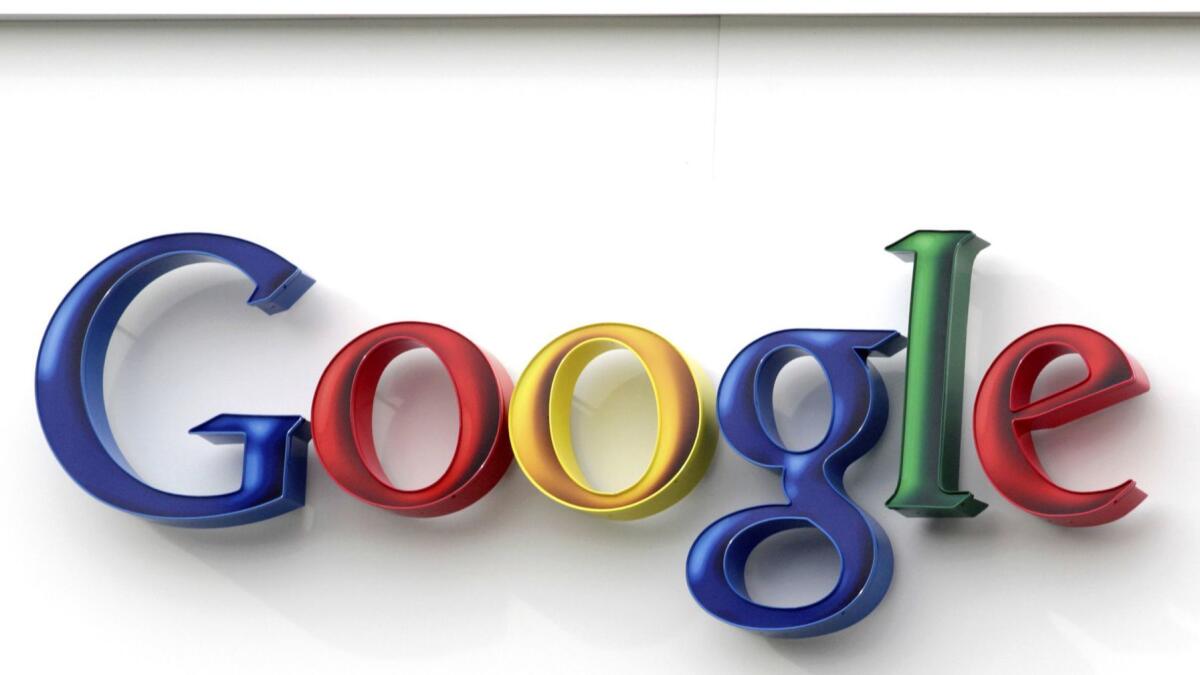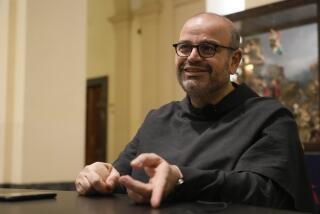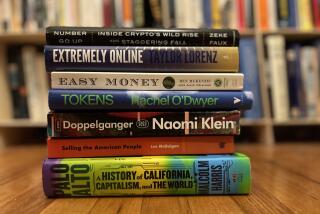Op-Ed: Google could use a little godliness

- Share via
I am a rabbi, so social media is not my primary operating system. Nevertheless — like billions of other people on Earth — I’m a Facebook, Twitter and Instagram user. Why shouldn’t a sermon reverberate across as many virtual channels as possible? Our globe is interconnected like never before because of such advances in technology, and that is something to be celebrated.
Still, the obvious needs stating: Our spiritual lives have suffered as technology use has expanded. We’ve forgotten how to pause, to look up from the screen, to see and be seen. The ethics of the internet corrode as quickly as they develop.
The onus of responsibility for reevaluating the effects of technology should not lie solely upon users; the providers of this technology share this responsibility too. After all, we occupy this new virtual landscape together. This symbiotic relationship is paralleled in Kabbalah, Jewish mysticism: The mekabel, receiver, can only receive insomuch as the mashpia, provider, can readily give.
That’s why it’s time for Silicon Valley to start hiring chaplains.
Chaplains work on-site in hospitals, prisons and social service agencies providing spiritual care to all — nurses as well as patients, guards as well as prisoners, staff as well as clients. It’s not so farfetched. Technology companies host gyms, massage therapists, keynote speakers and meditation spaces to contribute to the wellbeing of their employees. Why not chaplains too?
It’s time for Silicon Valley to start hiring chaplains.
The tech giants clearly recognize that some type of change is needed. Apple recently acknowledged the woes of iPhone addiction by introducing software to monitor how much time users spend with their mobile devices. Google has a similar app for its Android P. But is another app really the answer?
Technology-related ethical issues are bound to multiply and get more complex in the years ahead. In a digital age, what’s private and what’s shared? What’s hate-inciting language and what’s free speech? And who gets to determine the answers?
Apple, Google and Facebook describe themselves as the creative tools, search engines and connectors of the world — but they are more than that at this point. They sustain the world now. Their reach is undeniable, shaping the very fabric of our lives. That is a profound responsibility. Chaplains can help the leaders and staff of these global organizations face it with greater spiritual awareness. They might facilitate and offer study groups, mindfulness practices, spiritual and pastoral counseling, workshops in ethics and philosophy, weekend retreats. The possibilities are as open-ended as a Google search.
Enter the Fray: First takes on the news of the minute from L.A. Times Opinion »
Ignoring these concerns has consequences — as Facebook can certainly attest. After allowing companies to scrape millions of profiles without consent, Facebook is facing a backlash from users, politicians and investors. If, as he has claimed, Facebook Chief Executive Mark Zuckerberg truly believes that community, values and ethics are the foundational bricks in his organization, he should be the first to bring chaplains aboard.
To some, this might seem like a suspicious attempt at religious indoctrination. But this isn’t about dogma. Any clergy person worth their vestments knows that it’s a buyer’s market out there; the days of preaching solely from the silo of the pulpit are long gone. Spirituality is not confined to the synagogue, nor mysticism to the mosque, nor truth to church. If God is everywhere, then there must be godliness in the online abyss too. Teachers of our various faith traditions can help show us where.
Whether they realize it or not, technology leaders are writing a virtual universal constitution. What they’re doing is important to humanity. With a little spiritual guidance, maybe it’ll be easier for them to pause the emoji barrage and hear the human voice.
Just as clergy offer counsel to their congregants, the users, let’s bring chaplains into tech offices, the providers. Sure, it may be hard to envision the Pope giving a talk on sexuality at Tinder, but it’s a new dawn. Anything is possible and this rabbi is ready for the unexplored frontier. Google, you know where to find me.
Avram Mlotek is a rabbi, writer, actor and co-founder of Base Hillel.
Follow the Opinion section on Twitter @latimesopinion and Facebook
More to Read
A cure for the common opinion
Get thought-provoking perspectives with our weekly newsletter.
You may occasionally receive promotional content from the Los Angeles Times.









